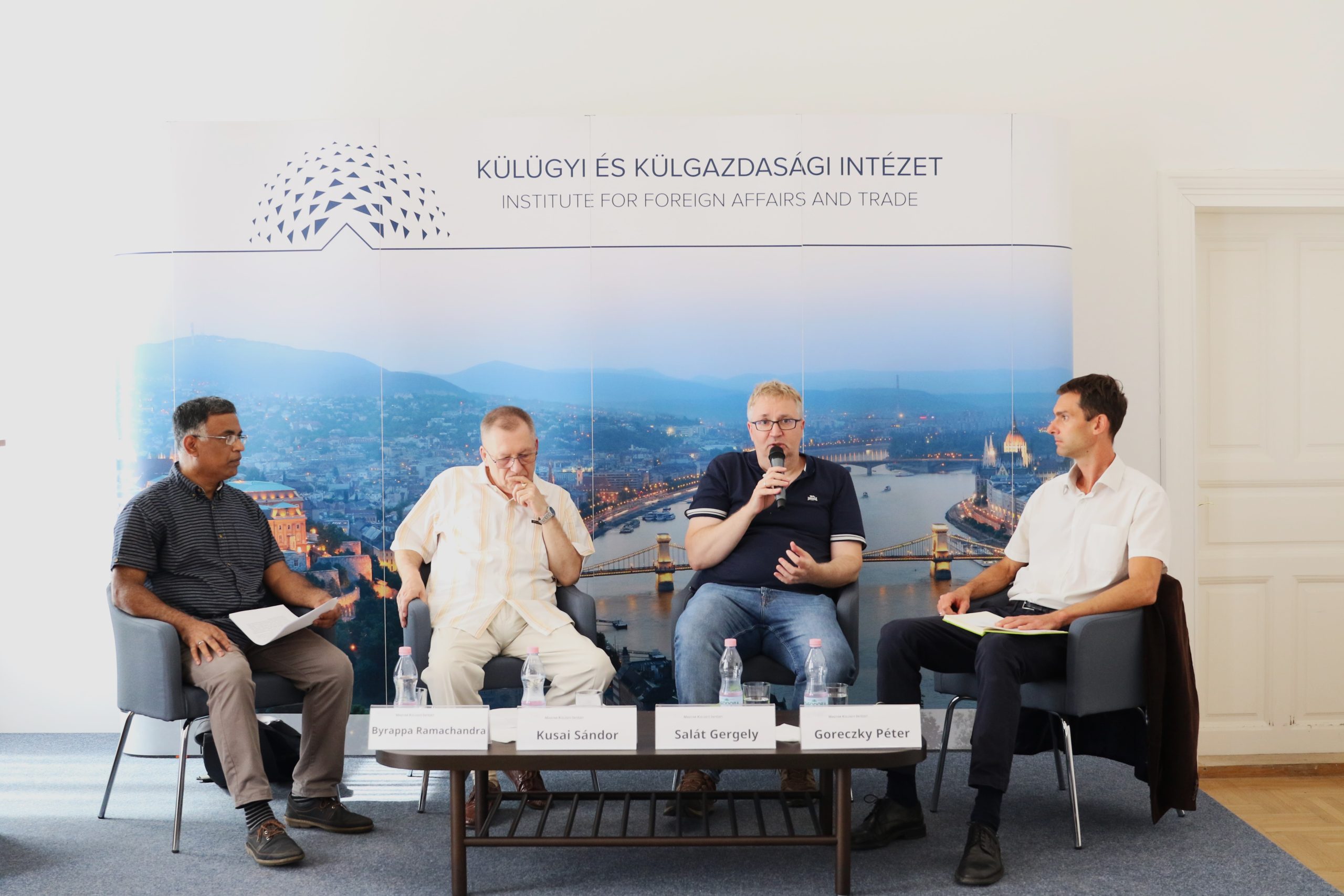On 25 August 2023, the Hungarian Institute of International Affairs (HIIA) hosted a roundtable discussion on the annual BRICS summit, concluded on the day before. Invited experts of the panel were Sándor Kusai, Honorary Associate Professor at Pázmány Péter Catholic University, Gergely Salát and Byrappa Ramachandra, both are senior researchers at HIIA. The panel discussion was moderated by Péter Goreczky, senior analyst at HIIA.
Regarding the high expectations preceding the summit, the participants underlined that US and Western sanctions policy against Russia had created anxiety in several countries resulting in a wave of new applicants for joining the BRICS formation. However, applications are mainly driven by pragmatic considerations and not by ideology. A main conclusion of the discussion was that Western analysts tended to perceive BRICS as a bloc of countries while the declaration of the Johannesburg summit reflects that member states consider the formation as a tool or platform for transfroming the global order. In this field the BRICS countries made considerable progress when setting up an agenda and deadlines in the final document of the summit for the restructuring of international organisations. While the declaration cannot be seen as an ultimatum for the West, in fact it is quite close to being exactly that.
In the discussion participants analysed in detail the expansion of the formation announced during the summit. With the accession of Saudi Arabia, Iran and the UAE the gravity of global energy production will shift to the BRICS increasing further the influence of the grouping in the global economy. Southeast Asia and the Sub-Saharan Africa were mentioned as possible geographic dimensions of future enlargement of the group. Regarding its further expansion, the accession criteria will be of crucial importance for which the declaration of the summit did not disclose any details.

